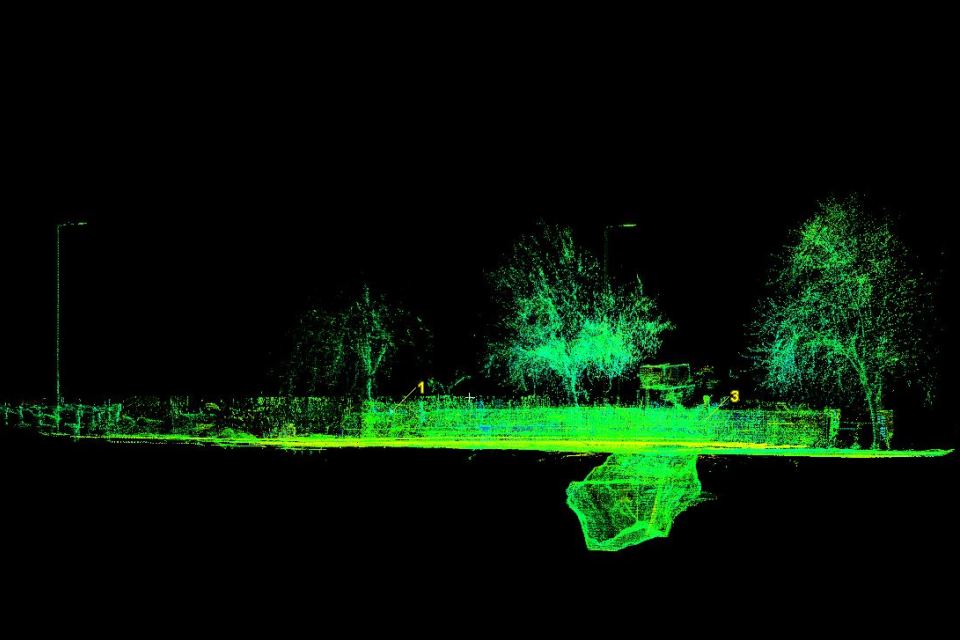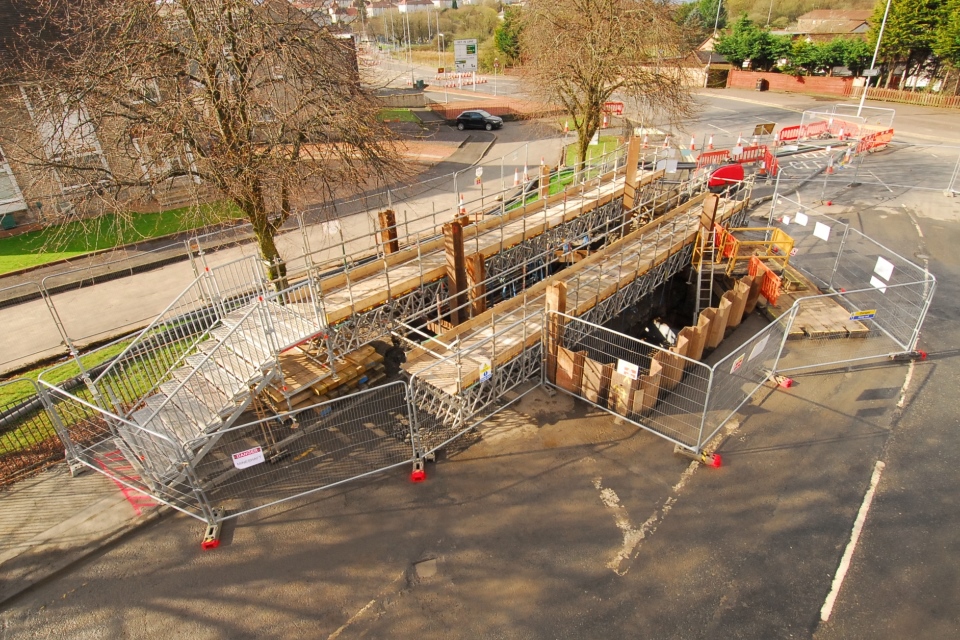News story: Laser technology used in works to secure mine shaft
Works are now complete to secure an unrecorded mine shaft, which caused a ground collapse at Kilbowie Road, Clydebank.
The collapse was caused by a mine shaft that was not detailed in historical mining records, but we believe that it was used to extract coal, limestone and iron ore over 100 years ago.
While only a 6 metre diameter hole was initially visible at the surface, investigations using laser scanning technology identified this led to a 200 cubic metre void on top of the unrecorded mine shaft, which went down a further 56 metres.

The depth of the mine shaft is the equivalent to the height of 14 double decker buses stacked on top of one another.
Our team of experts designed a solution to safely:
- fill the shaft with 140 tonnes of stone and inject 217 tonnes of pressurised grout
- construct a reinforced concrete cap
This repair was further complicated by exposed utility services in the void that needed to be protected during the works. A fractured foul water sewer and storm water drain within the ground collapse also made the repair more complex, with water needing to be pumped over 150 metres around the void during the works.

Tim Marples, Head of Public Safety and Subsidence, said:
“Our team has now completed works to secure the mine shaft and we’ve handed over the site to West Dunbartonshire Council who are leading on the road reinstatement works.
“It’s been a complex repair project, but our team’s been operating 7 days a week to ensure it was completed as quickly as possible.
“We’d like to thank residents for their patience while our works have taken place.”
A West Dunbartonshire Council spokesperson said:
“Following the completion of the Coal Authority’s repairs, work will begin to fill the void above the shaft, reinstate services, commence the road reconstruction and resurface the road.
“This phase of the repairs was anticipated to take up to 16 weeks, however, we hope to have completed this work by the end of June.
“If residents have any specific queries we would encourage them to email roads@west-dunbarton.gov.uk so that we can help.”